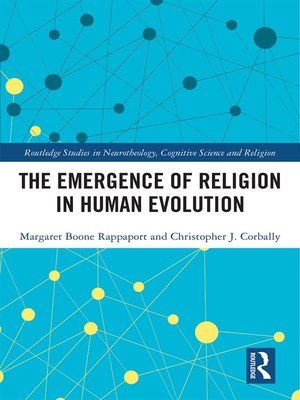The Emergence of Religion in Human Evolution
ebook ∣ Routledge Studies in Neurotheology, Cognitive Science and Religion
By Margaret Boone Rappaport

Sign up to save your library
With an OverDrive account, you can save your favorite libraries for at-a-glance information about availability. Find out more about OverDrive accounts.
Find this title in Libby, the library reading app by OverDrive.



Search for a digital library with this title
Title found at these libraries:
| Library Name | Distance |
|---|---|
| Loading... |
Religious capacity is a highly elaborate, neurocognitive human trait that has a solid evolutionary foundation. This book uses a multidisciplinary approach to describe millions of years of biological innovations that eventually give rise to the modern trait and its varied expression in humanity's many religions. The authors present a scientific model and a central thesis that the brain organs, networks, and capacities that allowed humans to survive physically also gave our species the ability to create theologies, find sustenance in religious practice, and use religion to support the social group. Yet, the trait of religious capacity remains non-obligatory, like reading and mathematics. The individual can choose not to use it.
The approach relies on research findings in nine disciplines, including the work of countless neuroscientists, paleoneurologists, archaeologists, cognitive scientists, and psychologists.
This is a cutting-edge examination of the evolutionary origins of humanity's interaction with the supernatural. It will be of keen interest to academics working in Religious Studies, Neuroscience, Cognitive Science, Anthropology, Evolutionary Biology, and Psychology.







